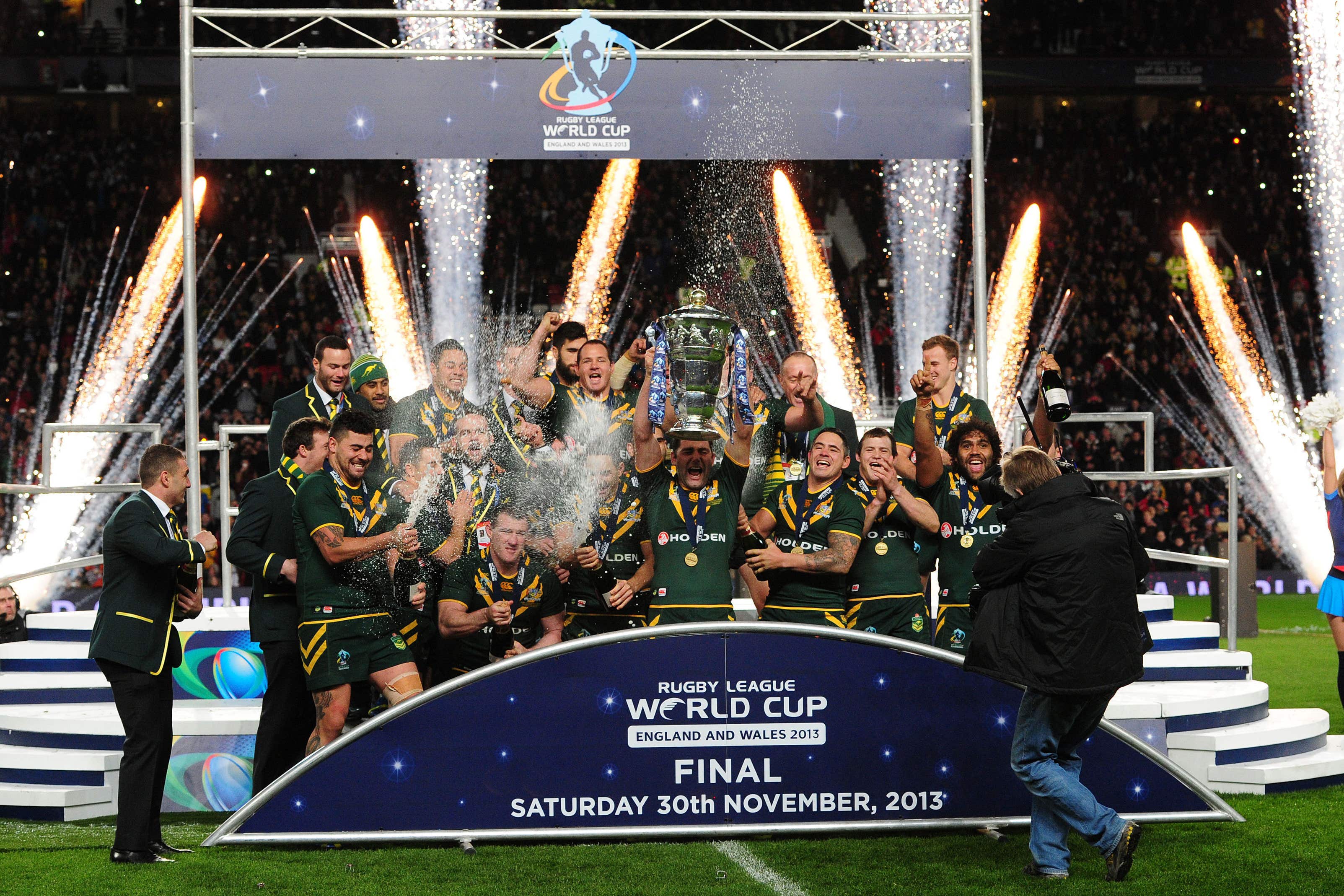A look at the last three Rugby League World Cups to be held in the UK
The tournament has only been held on a regular basis for the last 26 years

Your support helps us to tell the story
From reproductive rights to climate change to Big Tech, The Independent is on the ground when the story is developing. Whether it's investigating the financials of Elon Musk's pro-Trump PAC or producing our latest documentary, 'The A Word', which shines a light on the American women fighting for reproductive rights, we know how important it is to parse out the facts from the messaging.
At such a critical moment in US history, we need reporters on the ground. Your donation allows us to keep sending journalists to speak to both sides of the story.
The Independent is trusted by Americans across the entire political spectrum. And unlike many other quality news outlets, we choose not to lock Americans out of our reporting and analysis with paywalls. We believe quality journalism should be available to everyone, paid for by those who can afford it.
Your support makes all the difference.This year’s delayed Rugby League World Cup will be the 16th going back to 1954 but has only been held on a regular basis for the last 26 years.
Here the PA news agency looks back at the last three tournaments to be held in the UK.
1995
Rugby league was in a state of flux on the eve of the Super League revolution and plans to mark the game’s centenary were hurried and very much last minute but organiser Maurice Lindsay managed to get Diana Ross to perform at the opening ceremony and the tournament proved to be a resounding success.
Much of that was due to the first match, in which England beat holders and hot favourites Australia at Wembley live on the BBC on a Saturday afternoon to set the tournament alight.
Crowds subsequently flocked to Keighley, Gateshead and Cardiff to watch the 10 nations do battle in the group stages before England saw off a star-studded Wales team in the semi-finals and Australia got past New Zealand in extra time.
Status Quo performed at the final which drew a crowd of 66,540 to Wembley but there was no fairy tale finish for the home side, with Bob Fulton’s Kangaroos prevailing 16-8 despite being forced to field a weakened team due to the Super League war.
2000
The tournament was such a financial disaster that it took eight years before the game felt confident enough to hold another.
Dreadful weather played its part but organisers clearly overstretched themselves with overambitious plans, in particular the decision to increase the number of teams to 16 and to take matches to such territories as Belfast, Reading and Watford.
Australia retained the trophy with a 40-12 win over New Zealand in the final at Old Trafford where a crowd of 44,329 was swelled by the distribution of thousands of free tickets.
2013
Who can forget Shaun Johnson’s converted try 20 seconds from the end of a gripping Wembley semi-final which denied England a place in the final?
Under Steve McNamara, England had endured a difficult build-up, losing to Italy in a warm-up match and experiencing off-field issues which saw Zak Hardaker and Rangi Chase exit the camp before the closing stages.
Yet they grew into the tournament and, after hammering France in the quarter-finals, fully deserved an 18-14 lead against the then holders New Zealand in the semi-final until Johnson cruelly struck with the last play of the match.
The tournament as a whole was an unqualified success, with seven grounds achieving sell-out crowds, four of them setting stadium records, culminating in an attendance of 74,468 for the final at Old Trafford, where Australia ran out 34-2 winners over the Kiwis.

